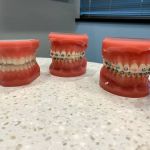As we age, our bodies undergo many changes, and one area that can be affected significantly is our oral health. Gum recession, a condition where the gum tissue pulls back from the teeth, exposing more of the tooth or its root, becomes increasingly common as we grow older. Personally, I’ve seen firsthand the challenges many older adults face with gum recession, and it’s an issue that can lead to not only discomfort but also long-term oral health problems. But the good news is that there are effective ways to prevent gum recession, and maintaining good oral hygiene habits can significantly reduce the risk of it.
Understanding Gum Recession: What Happens and Why?
To truly understand how to prevent gum recession, it’s important to first know what causes it. In my experience, one of the leading factors for gum recession is poor oral hygiene. This can lead to the accumulation of plaque and tartar on the teeth, which over time irritates the gums, causing them to recede. But it’s not just poor hygiene that’s at fault. Several other factors can contribute to this condition.
Genetics play a significant role. Some people are simply more prone to gum recession due to the way their body reacts to bacteria in the mouth. Another key factor is aggressive brushing. Many older adults have been taught to brush their teeth hard to ensure a thorough clean, but this can actually wear away the gum tissue. Hormonal changes in women, especially during menopause, also increase the risk of gum recession, which is something I’ve noticed with many of my female patients.
Practical Steps to Prevent Gum Recession
Now that we’ve established the causes, let’s explore some practical steps you can take to prevent gum recession. These strategies are based on my years of experience in the dental field, and they’ve proven to be effective for many people.
1. Brush Gently, but Thoroughly
If you’re brushing your teeth too aggressively, you might be doing more harm than good. I always recommend using a soft-bristled toothbrush and applying gentle pressure while brushing. The goal is to remove plaque, not damage your gums. It’s also important to brush in small, circular motions rather than scrubbing back and forth.
2. Use a Toothpaste Designed for Sensitive Teeth
Many older adults experience tooth sensitivity, and using a toothpaste designed for sensitive teeth can help protect your gums. These toothpastes contain ingredients that reduce irritation to the gums and teeth, making brushing more comfortable while also helping to prevent further gum recession.
3. Floss Daily
Flossing is a critical part of gum health that many people overlook. Over the years, I’ve noticed that those who floss regularly tend to experience less gum recession. Flossing removes food particles and plaque from between the teeth and along the gumline, areas that your toothbrush can’t reach. This helps prevent the buildup of bacteria that can irritate the gums.
4. Regular Dental Checkups
Visiting your dentist regularly is one of the most effective ways to prevent gum recession. During your checkup, your dentist can identify early signs of gum disease or recession, allowing for timely treatment. I always recommend at least two visits per year, especially for older adults who are more prone to gum issues.
5. Quit Smoking
Smoking is a major risk factor for gum disease, which often leads to gum recession. If you’re a smoker, quitting is one of the best things you can do for your gums. I’ve seen countless patients whose gum health dramatically improved after they stopped smoking. Not only does smoking contribute to gum recession, but it also hampers your body’s ability to heal and fight infection.
6. Use Mouthwash Regularly
A good antibacterial mouthwash can help reduce the buildup of plaque and bacteria that cause gum disease. I recommend using a mouthwash that contains fluoride and is specifically designed to protect against gum disease. This is an easy, quick addition to your oral hygiene routine that can make a big difference in maintaining healthy gums.
The Role of Diet in Gum Health
Another factor that plays a significant role in gum health is diet. I’ve often found that patients who consume a diet rich in vitamins and minerals tend to have healthier gums. Specifically, Vitamin C is vital for gum health. A deficiency in Vitamin C can lead to gum disease and, in some cases, even tooth loss. Additionally, foods rich in calcium help maintain strong teeth and gums. I always advise older adults to eat plenty of fruits, vegetables, and dairy products to support their oral health.
Can Gum Recession Be Reversed?
Once gum recession has occurred, it’s difficult to reverse. However, in many cases, the progression of the recession can be halted or slowed down with proper care. There are also surgical treatments available, such as gum grafting, which can help restore lost gum tissue. However, prevention remains the best strategy, and the steps outlined above can significantly reduce your risk of developing gum recession in the first place.
A Personal Story: How I Helped a Patient Overcome Gum Recession
I remember a patient I treated a few years ago. She was in her early 70s and had noticed that her gums were receding, especially around her front teeth. She was concerned about the aesthetic aspect, but more importantly, she had started to experience pain and sensitivity. After examining her gums and reviewing her oral hygiene habits, I realized that she was brushing too aggressively and not flossing regularly.
We worked together to adjust her oral care routine, starting with switching to a soft-bristled toothbrush and teaching her proper brushing techniques. I also recommended that she use a toothpaste for sensitive teeth and introduced her to the benefits of regular flossing. Within just a few months, her gum health improved significantly, and she was no longer experiencing pain or sensitivity. This story highlights the importance of understanding your own oral health habits and making small adjustments to protect your gums over time.
Final Thoughts
As we age, our oral health requires more attention and care, but with the right habits, we can effectively prevent gum recession and preserve our gum health for years to come. Remember, gentle brushing, regular flossing, and routine dental visits are all essential in preventing gum recession. By following these steps and staying proactive about your oral health, you’ll be well on your way to maintaining a healthy smile throughout your life.
If you're looking for more personalized dental advice or want to find the best dental services near you, visit us at Dentistry Toothtruth for recommendations on top-rated clinics and oral care services.







 Atwood Aaron DDS3.0 (18 review)
Atwood Aaron DDS3.0 (18 review) High Point Dentistry4.0 (1675 review)
High Point Dentistry4.0 (1675 review) Children's Dental FunZone - Pediatric Dentist - Fontana4.0 (1496 review)
Children's Dental FunZone - Pediatric Dentist - Fontana4.0 (1496 review) Dr Donnelly Patrick5.0 (43 review)
Dr Donnelly Patrick5.0 (43 review) Gladwell Orthodontics4.0 (253 review)
Gladwell Orthodontics4.0 (253 review) Nathan Satler, DDS4.0 (64 review)
Nathan Satler, DDS4.0 (64 review) The Importance of Oral Health Education During Pregnancy for a Healthy Pregnancy
The Importance of Oral Health Education During Pregnancy for a Healthy Pregnancy Best Tips for Brushing Your Teeth Properly for Healthy Gums: Essential Techniques for Oral Health
Best Tips for Brushing Your Teeth Properly for Healthy Gums: Essential Techniques for Oral Health Why Skipping Dental Checkups Can Lead to Bigger Oral Health Problems
Why Skipping Dental Checkups Can Lead to Bigger Oral Health Problems Advantages of Porcelain Dental Restorations
Advantages of Porcelain Dental Restorations How Can Diabetes Cause Tooth and Gum Problems? Preventing and Managing Oral Health Issues
How Can Diabetes Cause Tooth and Gum Problems? Preventing and Managing Oral Health Issues Healthy Habits for Promoting Good Oral Health and Hygiene: Tips for a Healthy Smile
Healthy Habits for Promoting Good Oral Health and Hygiene: Tips for a Healthy Smile